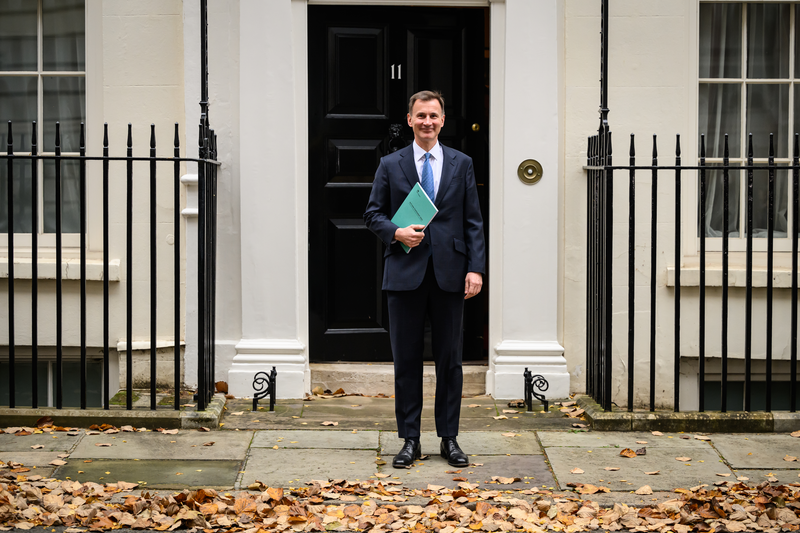UK Chancellor Jeremy Hunt used his autumn statement to set out plans to boost spending on “computer power” to develop artificial intelligence in the UK.
Hunt pledged his support for “innovative industries”. He said in the last decade the UK has grown to become the third largest technology sector in the world after the US and China.
Hunt said: “We know that AI will be at the heart of any future growth.” Building on the success of the supercomputing centres in Edinburgh and Bristol, Hunt pledged to “invest a further £500m [$625m] over the next two years to fund further innovation centres to help make us an AI powerhouse”. This brings the total planned investment to more than £1.5 billion ($1.9 billion).
The UK AI market is valued at over $21 billion and is estimated to grow to over $1 trillion by 2035.
Government ambition
AI is central to the UK’s tech ambitions with the government hosting an international AI safety summit earlier this month. The chancellor has previously said that the Prime Minister’s ambition for the UK is to become a “science and technology superpower”. The Chancellor also said “the biggest opportunity for the UK going forward is to be the world’s next Silicon Valley”.
Few details have been released on the nature of the investment apart from the plans to invest in “compute power” and “to support our most innovative industries.” There has also been scant information on how and if the government is planning on new laws to regulate the AI industry.
Only last week, the UK’s first minister for AI and intellectual property, Viscount Jonathan Camrose, said at a Financial Times conference that there would be no UK law on AI “in the short term”.
Balancing innovation and safe adoption
Commenting on news that the government is developing its wider regulatory approach for AI to balance innovation and safe adoption, Alexander Amato-Cravero, regional head of Herbert Smith Freehills’ Emerging Technology Group, said: “As the hype around AI settles, any market with an unclear stance on the balance of innovation and protection risks being seen as the ‘wild west’.
“The Government is making all the right noises about quickly providing much needed clarity on its regulatory approach while launching its AI sandbox to encourage innovation but – as we are seeing in Europe around the AI Act – the devil will most certainly be in the detail.”
His comments come in the wake of research which found that while 60% of UK consumers accept that AI will make the world run more efficiently by offering solutions quickly, just over half of those who do not trust AI say they are concerned about a lack of accountability in AI systems. One third (31%) also suggest that AI tools failing to meet ethical expectations is a problem.
“There remains a split about whether the UK is taking the right approach with AI regulation.”
Tom Whittaker, senior associate, Burges Salmon
Cravero adds: “The Government now has the hard task of articulating a suitably balanced approach in response to its AI white paper – one that drives confidence in the market by clarifying protections afforded to businesses and consumers, while remaining flexible enough to promote and account for future innovations. Given the breadth of risks posed by AI systems, collaboration between domestic and international policymakers will be key to the Government achieving its ambition of unlocking the potential of AI.”
Tom Whittaker, senior associate at independent UK law firm Burges Salmon, said: “The announcements in the budget are welcome for the AI industry. Government recognises much of what industry has been calling for – investment, access to capital, access to computing capability. These announcements will be well received, coming shortly after the AI Safety Summit at Bletchley Park and industry investments in the UK, with notable AI and tech companies choosing to locate here.
“However, industry is still calling for more – changes to investment schemes, changes to visa systems to attract more global talent, and improving technology education at all levels.”
On regulation, Whittaker said: “There remains a split about whether the UK is taking the right approach with AI regulation. Some argue that the UK is doing too little, too slowly and that the EU’s proposed AI laws will set the standards in this field. Others argue that the UK is taking the right approach, utilising existing regulators and regulations without burdensome new legislation.”

















